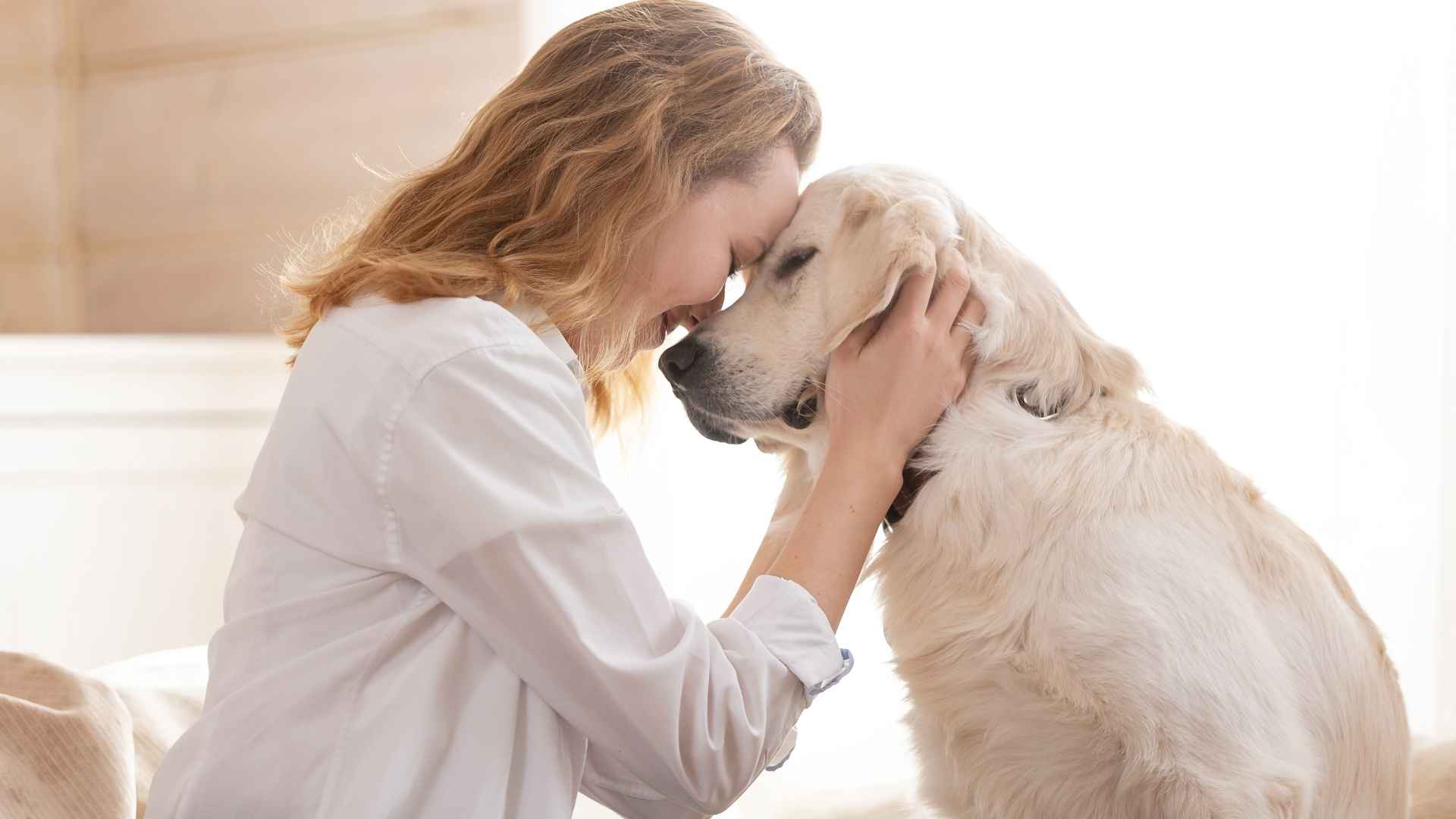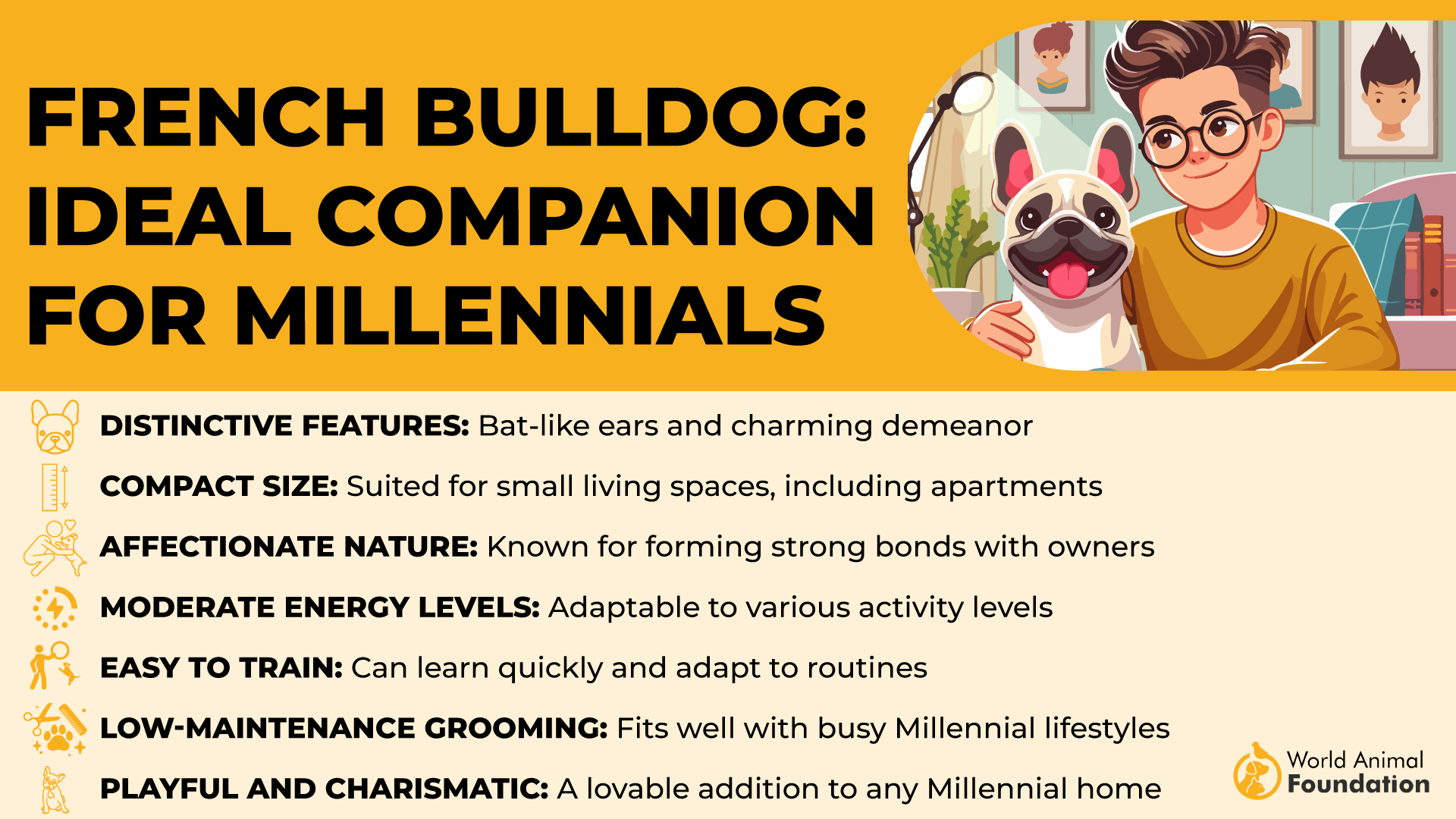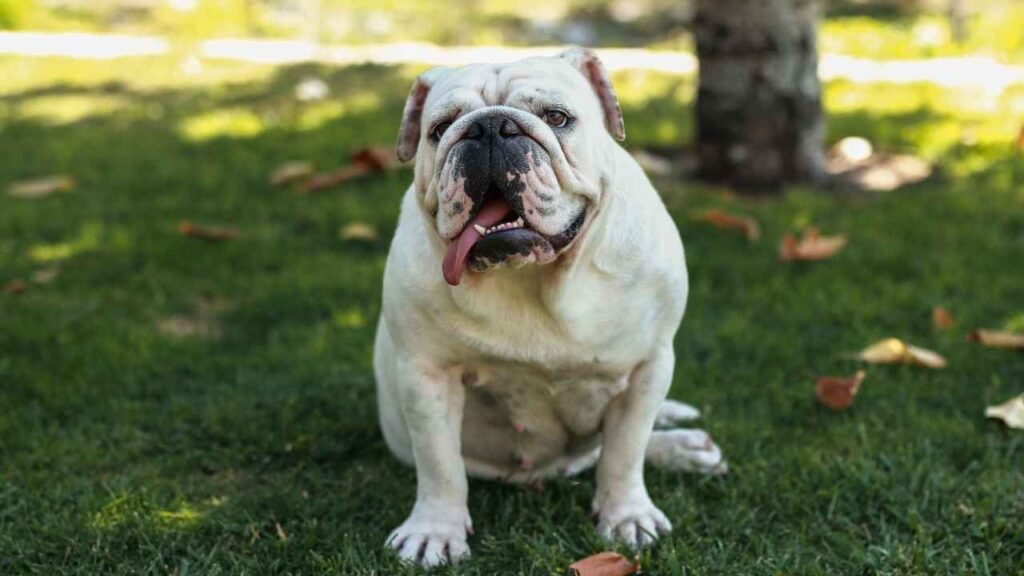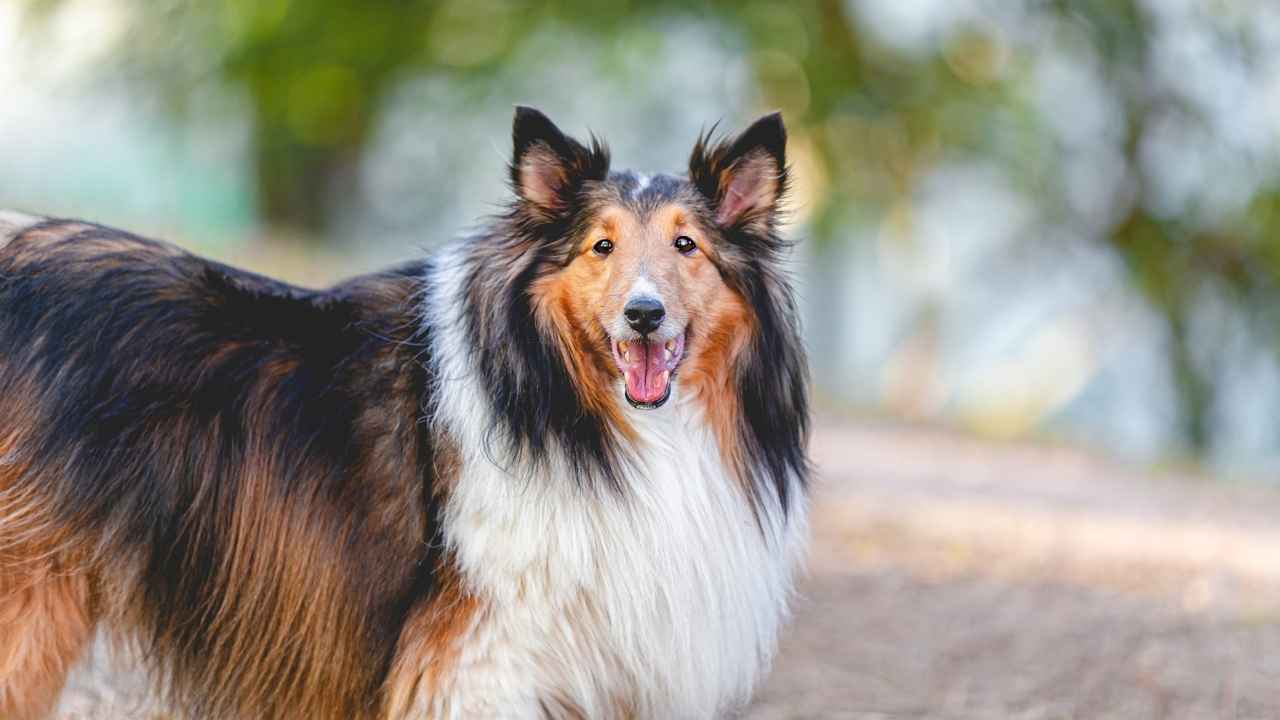In an increasingly stressful world, the soothing presence of a therapy dog can be a powerful balm for the soul. These remarkable animals provide unconditional love, emotional support, and a calming influence that can transform lives. Whether offering comfort to a child in a hospital, easing anxiety for someone with PTSD, or simply being a loyal companion to brighten a lonely day, therapy dogs are invaluable. Among the myriad of breeds, some stand out for their gentle nature, adaptability, and intuitive understanding of human emotions. Discover the nine best therapy dog breeds that excel in bringing comfort and companionship to those who need it most.
For years, therapy dogs have been providing emotional support, comfort, and companionship to people in need. These incredible canines offer more than just friendship; they help reduce stress, anxiety, and depression. Whether visiting hospitals, schools, or nursing homes, therapy dogs have a natural ability to bring joy to those around them.
Each dog has its unique personality and traits, but some breeds are particularly known for their gentle and affectionate nature, making them ideal therapy dogs. If you’re considering adopting a therapy dog or just curious about the breeds that excel in this role, this guide will help you identify some of the best therapy dogs. Here, we’ll dive into 9 popular breeds known for their therapeutic qualities, focusing on their temperament, trainability, and how they connect with people.
Best Therapy Dogs
1. Golden Retriever
Golden Retrievers are widely recognized as one of the best therapy dog breeds, known for their gentle temperament, intelligence, and friendly disposition. They form strong bonds with their owners and excel in offering emotional support, making them ideal candidates for animal-assisted therapy. Golden Retrievers are highly trainable and adaptable, allowing them to thrive in a variety of environments, from hospitals and nursing homes to schools and therapy settings. Their innate ability to read human emotions and provide comfort to those in need makes them a top choice for becoming a therapy dog.
While they are high-energy dogs, Golden Retrievers possess the obedience skills required to behave appropriately in busy environments as per AKC. Their willingness to please and consistent affection for their human companions allow them to excel at therapy dog work. Golden Retrievers also adapt well to different settings, proving their versatility in both busy and quieter spaces. With the proper training and certification, they provide a steady, loving presence, helping to reduce stress and anxiety for those in need.
Golden Retrievers are also one of the most popular choices for individuals seeking therapy dog certification. Their consistent behavior, good manners, and emotional intelligence make them a reliable companion for emotional support. Whether working in a formal therapy program or providing comfort in everyday life, these dogs are dedicated to offering unconditional love and emotional healing to individuals of all ages.
2. Labrador Retriever
Labrador Retrievers are another highly popular breed when it comes to therapy dogs. Known for their loving and affectionate nature, they quickly form strong emotional bonds with their owners and are highly adept at providing comfort and support. Labs are particularly effective in therapy work because they are highly intelligent, trainable, and possess a natural inclination to please. Whether in busy environments or quieter settings, Labradors are known to excel in animal-assisted therapy, offering reassurance to those in need of emotional support.
One of the reasons Labrador Retrievers make great therapy dogs is their adaptability and high energy, which can be channeled into positive interactions. These dogs thrive in therapy roles because of their friendly disposition and the ease with which they adapt to new situations. Labradors also have good obedience skills, making them easy to train for therapy dog certification. With consistent training, they perform exceptionally well in various therapeutic contexts, whether as emotional support animals or as part of more formal therapy programs.
Their natural ability to connect with people and their eagerness to work in service roles make them a great choice for those seeking a therapy dog. Labradors provide comfort and emotional support, while also being highly capable of providing physical service when needed. These dogs are reliable and responsive, showing affection and empathy for those who need it most.
3. Beagle
Beagles are known for their friendly and affectionate nature, making them an excellent choice for therapy dog work. These small, energetic dogs have an innate ability to connect with people, providing comfort and support during times of emotional stress. Beagles are well-suited for therapy work due to their gentle disposition and natural empathy for human emotions. According to Britannica, they are highly trainable and excel at following commands, which makes them a great option for animal-assisted therapy.
Though they are high-energy dogs, Beagles possess the ability to calm down and offer emotional support in different settings. Their smaller size and low maintenance needs make them ideal for individuals seeking a therapy dog that can easily adapt to various living environments. Beagles are also known for forming strong bonds with their human companions, creating lasting connections that make them perfect for those who need emotional support and comfort.
Training Beagles to become therapy dogs requires reinforcement of basic obedience skills, but they are generally quick learners. Once trained, Beagles offer a loving and steady presence, helping to reduce stress and anxiety for those in need. They are great for families or individuals who are looking for a smaller therapy dog that is still capable of making a big impact with their comforting presence.
4. Pug
Pugs are small, affectionate dogs that are ideal for therapy work, offering comfort and support with their playful and loving nature. Their friendly disposition and ability to form strong emotional bonds with their owners make them a great choice for emotional support animals. Pugs are known for their adaptability, making them suitable for various settings, from busy environments to quieter spaces. Their small size and low maintenance needs make them a popular option for individuals looking for a therapy dog that can fit into smaller living spaces, like apartments or homes with limited space.
Pugs are generally calm and enjoy spending time with their human companions, making them effective at reducing stress and promoting emotional well-being. They are also very social and enjoy interacting with other people and dogs, which can be especially helpful in therapy environments. While Pugs require basic obedience training, their friendly personality and affection make them easy to handle in therapy dog programs.
Their adaptability to different environments, along with their endearing appearance and loving behavior, make Pugs a wonderful option for therapy work. Whether offering comfort to individuals in need or providing emotional support as part of a formal therapy program, Pugs bring joy and healing wherever they go.
5. Yorkshire Terrier
Yorkshire Terriers, or Yorkies, are small, energetic dogs known for their affectionate nature and intelligence, making them a great choice for therapy work. Despite their small size, they have a big personality and are highly capable of offering emotional support to those who need it. As per PetMD, Yorkies form strong bonds with their owners and are particularly effective at providing comfort and reassurance to people suffering from anxiety, depression, or emotional distress. They thrive in environments where they can interact with people and provide their affectionate presence.
These small breeds are well-suited for therapy work in both individual and group settings. Their adaptability and willingness to please make them great candidates for therapy dog certification. Yorkies may be small in stature, but their compassionate and empathetic behavior allows them to help individuals in need, providing the emotional support required to reduce stress and anxiety. Their intelligent nature also allows them to quickly learn the basic obedience skills necessary to succeed as therapy dogs.
Yorkshire Terriers are excellent companions, offering comfort through their unconditional love and providing therapeutic benefits for people of all ages. Their ability to form lasting emotional bonds with their owners makes them a great choice for anyone looking for a small but impactful therapy dog.
6. French Bulldog
French Bulldogs are charming, affectionate dogs that make excellent therapy companions due to their loving and calm demeanor. These small, sturdy dogs have a friendly disposition and are known for forming strong emotional bonds with their owners. French Bulldogs are particularly effective in therapy work because of their ability to adapt to various settings, whether in busy environments or quieter spaces. They provide comfort and support, making them great emotional support animals, especially for those dealing with anxiety, stress, or depression.
One of the key benefits of French Bulldogs is their low-maintenance nature. They require minimal grooming and are typically calm and quiet, making them ideal for therapy work in both private and public spaces. French Bulldogs are also highly adaptable, adjusting well to different environments, and are often used in animal-assisted therapy programs to help individuals manage emotional and physical challenges. They provide a comforting presence, offering affection and companionship to those in need.
With proper training, French Bulldogs can become highly skilled therapy dogs, offering their support in various settings. Their good manners and willingness to please make them a reliable choice for individuals seeking a therapy dog that can offer consistent comfort and emotional support.
7. Bulldog
Bulldogs, with their calm and easygoing nature, make wonderful therapy dogs for individuals seeking emotional support. Known for their loyalty and affectionate behavior, Bulldogs are often used in therapy programs to offer comfort and companionship. Their gentle demeanor makes them great for providing emotional support, especially for individuals who need a steady presence. Bulldogs are also well-suited to therapy work in various settings, as they can adapt to both quiet and busy environments with ease.
Bulldogs are low-maintenance dogs, making them a good choice for people looking for a therapy dog that doesn’t require constant grooming. According to Hills Pet, they are also known for their social behavior, often forming deep bonds with their owners and showing affection to those they meet. Their slow, relaxed nature makes them ideal for therapy work, as they can offer a calming presence during stressful situations. Bulldogs provide emotional support and can easily adapt to therapy dog roles with proper training.
Due to their strong bond with their owners and their good manners, Bulldogs are frequently used as emotional support animals and in therapy dog programs. With consistent training, they make excellent companions for individuals who need comfort and a loving presence in their lives.
8. Collie
Collies are known for their intelligence, loyalty, and gentle temperament, making them an excellent choice for therapy work. These dogs are highly trainable and excel in providing emotional support to individuals in need. Collies have an innate ability to read human emotions and respond with affection, helping to ease stress and anxiety. Their friendly and calm demeanor allows them to adapt to various environments, whether working in therapy settings or as emotional support animals in homes and schools.
Collies are also well-suited for families, as they are known for being great with children and other pets. Their obedience and ability to follow commands make them highly effective in therapy dog programs, where they offer comfort and emotional support to people of all ages. Their natural empathy and intelligent nature make them ideal candidates for those looking for a therapy dog that can offer both comfort and companionship.
Whether working in animal-assisted therapy programs or as part of an emotional support role, Collies provides comfort and reassurance. Their strong bond with their owners and their high intelligence makes them a great choice for anyone seeking a therapy dog with the ability to provide lasting emotional healing.
9. Cavalier King Charles Spaniel
Cavalier King Charles Spaniels are small, affectionate dogs known for their loving nature and gentle temperament. These dogs excel in providing emotional support due to their ability to form deep bonds with their owners. They are often seen in therapy dog programs, where they offer comfort and support in various settings. Known for their adaptability, Cavaliers work well in both busy environments and more peaceful spaces, making them great therapy dogs for a wide range of individuals.
According to Purina, their small size, coupled with their calm demeanor, makes them a great choice for individuals living in apartments or smaller spaces. Cavaliers are also highly trainable and possess the obedience skills necessary to succeed as therapy dogs. Their friendly disposition and ability to interact with others make them ideal emotional support animals, providing comfort to those in need.
Cavalier King Charles Spaniels thrive in environments where they can be close to their human companions, offering consistent affection and emotional support. Whether as part of a formal therapy program or simply as a loving companion, they provide comfort and help reduce stress for people of all ages.
Conclusion
Choosing the right therapy dog is essential for emotional support and mental health. Popular therapy dog breeds like the Golden Retriever, Labrador Retriever, and Beagle form strong bonds with their owners and excel in service work. These dogs are gentle and well-suited for animal-assisted therapy. Additionally, potential therapy dogs like Collies and Cavalier King Charles Spaniels offer comfort with their affectionate nature and adaptability.
When selecting a therapy dog, consider the individual temperament and needs of the person. German Shepherds and Border Collies, known for their high energy and intelligence, thrive with special training, while small breeds like the Bichon Frise and Pug are low-maintenance and ideal for smaller living spaces. Frequent grooming may be needed, but their affectionate behavior makes them great companions.
No matter the breed, therapy dogs help reduce stress and improve mental health, offering comfort, companionship, and exercise. Their protective nature and ability to form strong bonds make them valuable in therapy and service work. Ultimately, therapy dogs play a crucial role in promoting emotional well-being and bringing smiles to those in need.
In conclusion, therapy dogs offer invaluable emotional support and companionship, making a significant impact on the well-being of those they assist. Among the diverse array of breeds, the nine highlighted stand out due to their temperament, sociability, and intuitive nature. These breeds, ranging from the gentle Labrador Retriever to the affectionate Cavalier King Charles Spaniel, exemplify qualities ideal for therapeutic roles. Their calming presence and ability to connect with humans on a deep emotional level make them exceptional comfort companions, fostering healing and joy. Selecting the right therapy dog breed enhances the effectiveness of emotional support, ensuring a positive and nurturing experience.












